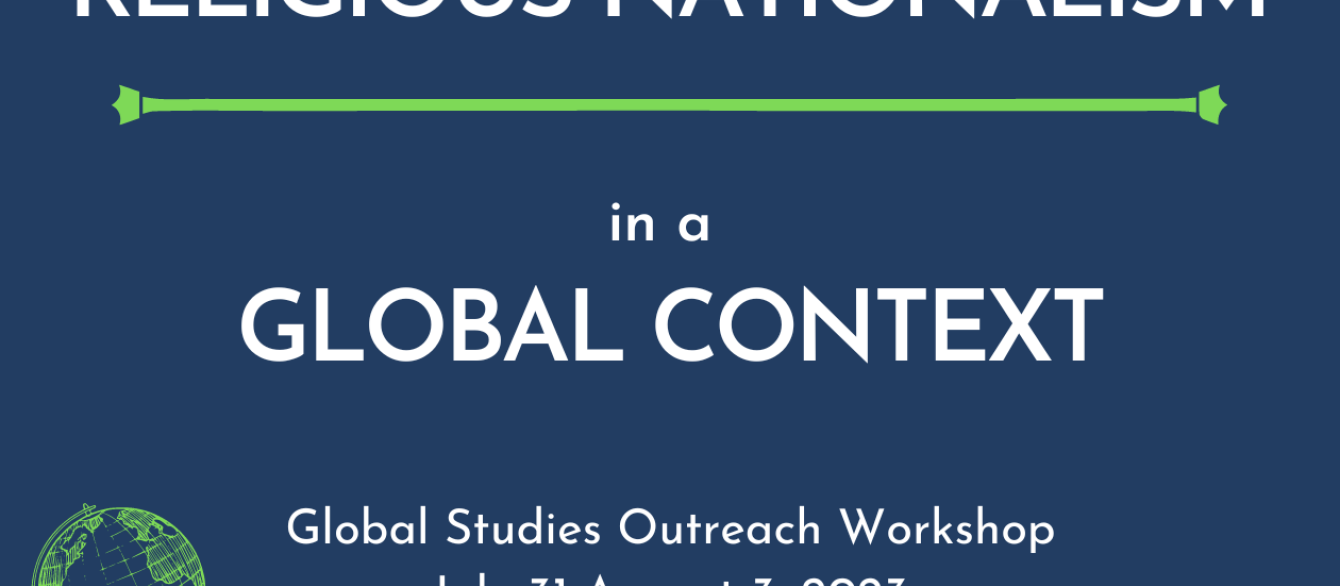Across the globe, the relationship between religion and nation-states is complex and dynamic. Religious nationalism, an often understudied aspect of this relationship, is key to understanding policies, personal and community impacts, and outcomes globally. Additionally, many narratives about nationalism encourage an overly simplistic view of both secularism and religion that hinders our ability to understand the complex ways in which religion is embedded in a variety of political contexts. In some countries, religious nationalism is an explicit guiding force behind governance; in others, it is a less visible or minority voice that nonetheless deserves attention. Its prevalence in the 21st century reveals the limits of conventional ideas about modernity and the future, and it invites us to investigate the reasons behind its continuing–and in some cases growing–influence.
Educators today must grapple with these issues as they teach their students to be global citizens. This year, the Global Studies Outreach (GSO) Workshop will provide teachers with a space to think, learn, and ask questions about religious nationalism in a variety of contexts. From India to Russia, Ethiopia to the United States, educators will learn about the ways religious nationalism manifests around the world and will explore, collectively, pedagogical responses to religious nationalism and how to teach about it in diverse classrooms.
The following questions will guide our study of this topic
- What historical, cultural, or theological factors help to explain the contemporary relationship between religion and politics in different national contexts?
- What assumptions are embedded in distinctions between religious and secular nationalism? How can we disrupt this binary?
- How can a better understanding of the ways secularism has been defined help us understand “religious” nationalism?
- Where can we identify religion embedded in contexts labeled “secular” and where do we see associations with secular democracy present in those labeled “religious”?
- How do we evaluate the impact of religious nationalism on local/national policies and on the lived experience of people of diverse backgrounds across the globe?
- What are religious nationalism’s varied relationships to democracy and authoritarianism, tradition and modernity, science and technology?
- How do we negotiate thorny issues of faith, belief (religious and political), values and more in today’s classrooms? How can tools of religious literacy help to navigate these issues in the classroom in ways that are pedagogically rich and constitutionally sound?
Over four days, the Global Studies Outreach Committee will present speakers, lead conversations, and encourage engagement on this topic. Educators will leave the workshop with a deeper understanding of this complex issue, resources they can bring to their classrooms, and relationships with other teachers and experts.
Format
This year's workshop will take place in person on Harvard's Cambridge campus from July 31-August 3, 2023.
Cost
The cost to attend the workshop is $100.
Application
Please fill out the application here. The application is due on April 14.
COVID-19 Guidance
The Global Studies Outreach Committee will follow all CDC and Harvard University guidelines for COVID-19 safety.
Sponsorship
This workshop is organized by the Global Studies Outreach Committee, a consortium of centers at Harvard University, including the Davis Center, the Asia Center, the Center for African Studies, and the Global Health, Education and Learning Incubator. Additional program support is provided by North Shore Community College and Religion and Public Life at Harvard Divinity School.
Accessibility
The Davis Center for Russian and Eurasian Studies at Harvard University encourages persons with disabilities to participate in its programs and activities. If you anticipate needing any type of accommodation or have questions about the physical access provided, please contact us at 617-495-4037 or daviscenter@fas.harvard.edu in advance of your participation or visit. Requests for Sign Language interpreters and/or CART providers should be made at least two weeks in advance if possible. Please note that the Davis Center will make every effort to secure services but that services are subject to availability.




